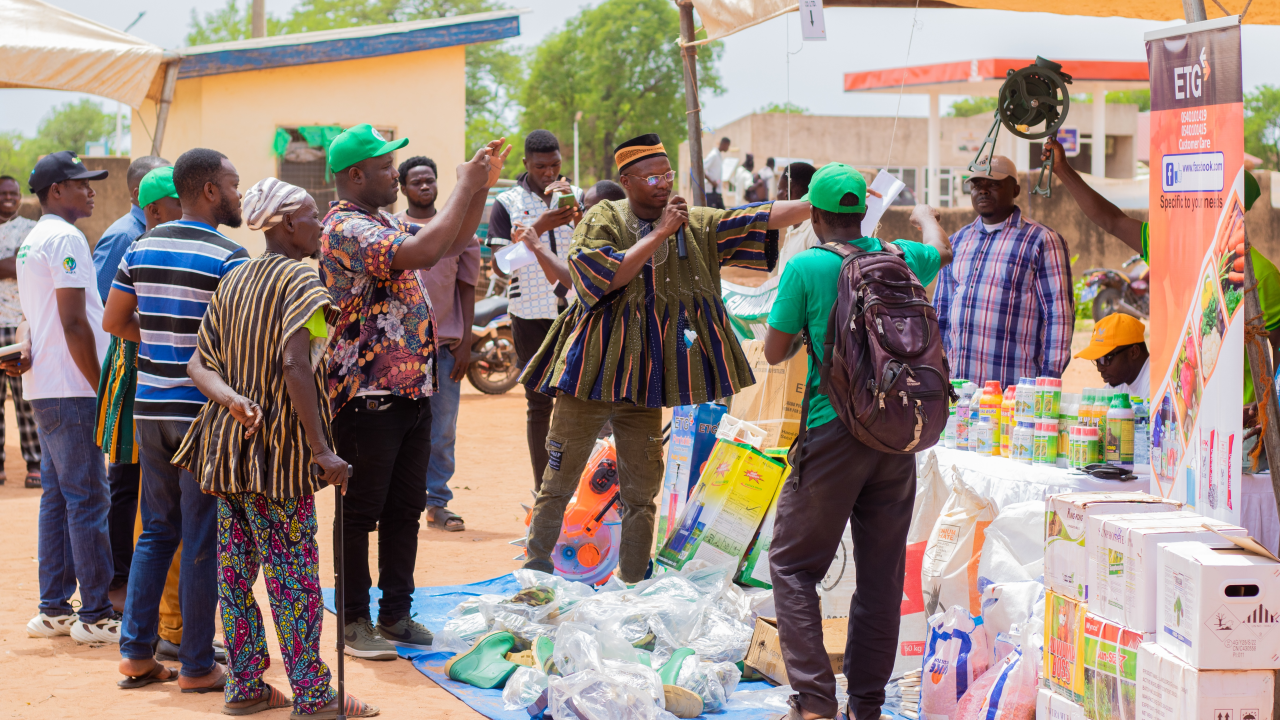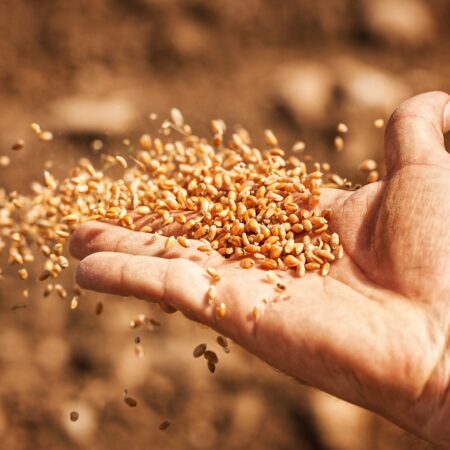
In the agricultural value chain, agro-dealers connect farmers with inputs. They are the often-overlooked “last mile” heroes connecting manufacturers, distributors, and government interventions to the real users: smallholder farmers. But today, this critical cog in the agricultural value chain is under siege.
When the Planting for Food and Jobs (PFJ 2.0) initiative was launched, a silent but consequential omission remained—agro-dealers, who were not clearly featured or strengthened as part of the transformation architecture. Many of them are now hanging by a thread, undercapitalized and discouraged, with some shifting to more stable retail sectors such as furniture, construction, cosmetics, or electronics. It is time for a national awakening to rescue this vital segment before the cracks become crevices.
The Importance of Agro-Dealers in the Agricultural Value Chain
Agro-dealers are the nerve endings of the input supply chain. They bring seeds, fertilizers, agrochemicals, and technical knowledge to the doorsteps of rural farmers. But they do more than just trade; they are educators, community-based advisors, and sometimes even financiers. They know their customers by name and farm size, and they bridge the trust gap that often exists between government programs and skeptical smallholder farmers.
Without a functional network of agro-dealers, the benefits of improved seeds, subsidized inputs, or training programs fail to reach their intended targets. They are the key to adoption, affordability, and accountability. A well-capacitated agro-dealer ecosystem ensures timely input availability, reduces counterfeit products, and supports the government’s broader food security goals.
Efforts by Donor Communities
Recognizing this, several development partners have over the years launched initiatives to build the capacity of agro-dealers. Projects by AGRA USAID’s ADVANCE, GIZ Ghana, UKAID, and others have supported training in business management, inventory control, record-keeping, and safe handling of agrochemicals. Some have even created digital tools and dealer certification programs to build credibility and improve service delivery.
But these interventions, while impactful, have not been sustained or scaled. Most donor projects are time-bound, leaving agro-dealers unsupported once the funding cycles end. Moreover, these efforts have not resolved the fundamental problem—access to working capital.
Challenges Agro-Dealers Face
A barrage of hurdles confronts today’s agro-dealer:
- Lack of Affordable Financing: Most operate as micro-enterprises without collateral, making it difficult to access loans from banks or even input credit from major distributors.
- Low Margins and Seasonality: The agribusiness calendar is seasonal. Cash flow during the off-season is low, but overheads remain.
Exclusion from Government Programs: Unlike input suppliers, aggregators, or nucleus farmers, agro-dealers were not included in the flagship government PFJ 2.0.
- Erosion of Trust: Farmers often blame them when inputs fail to perform, regardless of whether the issue lies in application or product quality.
As a result, many agro-dealers are quietly closing shop or switching to more stable businesses with better margins and less risk. This signals a crisis in the last mile of agricultural input distribution.
Current Realities: A Sector in Decline
With little to no access to input finance, and unable to compete with large distributors or informal sellers, agro-dealers are struggling. Inventory stock-outs, late delivery of inputs, and loss of customers are common. The enthusiasm for running an agro-dealership has waned, especially among youth. In some regions, shops have been converted to sell household goods, cosmetics, or even fast food.
If this trend continues, the country risks losing the backbone of input distribution just when we need it most to build food system resilience.
Recommendations to Government and Investors
- Establish an Agro-Dealer Support Fund: A government-backed, low-interest credit facility through microfinance institutions or agribusiness banks could provide seasonal financing to registered agro-dealers.
- Formalize and Integrate Agro-Dealers into Feed Ghana Programme (FGP): Include agro-dealers as last-mile distributors in the FGP structure. Build a digital registry and performance monitoring system to track their contribution.
- Strengthen Public-Private Collaboration: Encourage partnerships between input manufacturers, financial institutions, and agro-dealers. Blended finance tools can de-risk lending.
- Capacity Building and Certification: Create a national agro-dealer certification framework that promotes professionalism, business training, and safe practices. Make certification a requirement for participation in government-supported input schemes.
- Digital Tools for Creditworthiness: Use digital platforms to collect sales and inventory data from agro-dealers to assess their creditworthiness.
- Promote Youth Agro-Dealer Franchises: Develop franchise-style agro-dealer models targeted at youth and women, offering branding, startup kits, and mentorship to build the next generation of input suppliers.
- Tax Incentives and Business Development Services: Offer temporary tax relief for rural agro-dealers and support with logistics, warehousing, and marketing.
Conclusion
Saving the agro-dealer network is not just a business imperative, but a national food security issue. Ignoring them will widen the gap between policy and practice, between innovation and adoption. The government, development partners, and investors must rally behind this sector to build a more resilient, inclusive, and sustainable input delivery system.
The last mile is the longest and hardest, but it is also the most important. Let us not fail the hands that hold our nation’s future.


